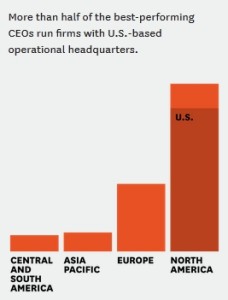
Twenty-four of HBR’s 100 best-performing CEOs have undergraduate or graduate degrees in engineering, compared with 29 who have MBAs. (Eight CEOs have both degrees.) At technology or science-based companies, it’s not a big surprise to find an engineer at the helm. But engineers thrive at the top of other kinds of firms, too: Examples include Carlos Alves de Brito of brewing giant Anheuser-Busch InBev, Jeffrey Sprecher of the financial services firm Intercontinental Exchange, and Kari Stadigh of the insurance company Sampo.
What makes an engineering degree useful to people leading a business? “Studying engineering gives someone a practical, pragmatic orientation,” says Nitin Nohria, the dean of Harvard Business School, who holds an undergraduate degree in chemical engineering from the Indian Institute of Technology, Bombay. “Engineering is about what works, and it breeds in you an ethos of building things that work—whether it’s a machine or a structure or an organization. Engineering also teaches you to try to do things efficiently and eloquently, with reliable outcomes, and with a margin of safety. It makes you think about costs versus performance. These are principles that can be deeply important when you think about organizations.”
More: HBR, November 2014 Issue